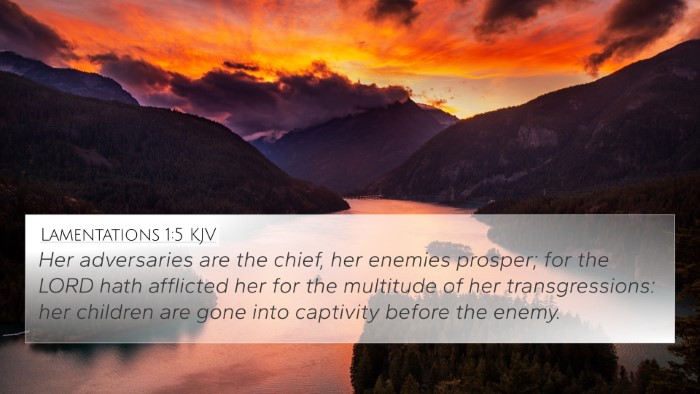Understanding Deuteronomy 28:44
Deuteronomy 28:44 states: "He shall lend to you, but you shall not lend to him; he shall be the head, and you shall be the tail." This verse illustrates the consequences of disobedience to God’s commandments, emphasizing the consequences on Israel's standing among nations.
Contextual Background
This verse is situated within the blessings and curses outlined in Deuteronomy 28, a chapter that starkly contrasts the rewards for obedience with the severe repercussions of disobedience. The Israelites, having received the law, are reminded of the national implications of their faithfulness or lack thereof.
Meaning and Interpretation
- Subservience and Dependence: This verse suggests that the Israelites would become dependent on other nations for their needs, losing their autonomy and becoming subjugated.
- Financial Relationships: The contrast between lending and borrowing highlights a loss of economic power, which relates back to the covenant blessings that included prosperity.
- Leadership and Position: The head and tail imagery signifies a reversal of the expected order, wherein Israel, once a leader among nations, becomes insignificant.
Commentary Insights
Matthew Henry notes that the promise of wealth and blessing from God was conditional. Disobedience would result in the opposite scenario of being the borrower instead of the lender, indicating God’s favor had shifted.
Albert Barnes emphasizes the national and spiritual implications of this verse. He interprets it as a manifestation of God’s judgment upon Israel when they abandon their covenant responsibilities.
Adam Clarke highlights the significance of being the 'tail,' which denotes a position of inferiority and suggests the severe setback in their national identity.
Cross-References
This verse connects with several other biblical passages that reinforce its themes:
- Leviticus 26:37: Describes the fear and terror that the disobedient will face from their enemies.
- Deuteronomy 15:6: Speaks to Israel's former prosperity and their role as lenders, not borrowers.
- Isaiah 1:19-20: Presents a dichotomy of obedience leading to prosperity versus disobedience resulting in calamity.
- Jeremiah 30:14: Expresses the notion of forsaking friends, paralleling Israel’s loss of support from allies.
- Proverbs 22:7: Mentions that the borrower is servant to the lender, mirroring the theme of dependency.
- Luke 6:38: Points to the principle that generosity will lead to receiving, contrasting with the plight of the Israelites under the curses.
- Romans 11:22: Talks about the severity of God, indicating the importance of remaining in His favor, akin to the blessings outlined in Deuteronomy.
Thematic Connections
The themes in Deuteronomy 28:44 can be seen playing out throughout other scriptural texts.
- Disobedience and Consequences: The consistent biblical narrative that presents blessings for obedience and curses for disobedience.
- The Role of Nations: The positioning of Israel in relation to surrounding nations and how divine favor affects national dynamics.
- Leadership Dynamics: Exploring the shifts in leadership among nations as a result of divine Providence.
Tools for Further Study
For those seeking to delve deeper into the themes of Deuteronomy 28:44, various resources can be utilized:
- Bible Concordance: Useful for finding themes and topics across different verses.
- Bible Cross-reference Guide: Helps to locate verses that relate to similar themes.
- Cross-reference Bible Study: Encourages a thematic study approach by linking various scriptures.
- Bible Reference Resources: Provide context and background for particular verses, enhancing understanding.
- Cross-reference Bible Study Methods: Offers structured approaches to studying connections between texts.
Conclusion
Deuteronomy 28:44 serves as a sobering reminder of the consequences of abandoning God’s commandments. By exploring related scripture, one can see the broader narrative the Bible weaves regarding obedience, leadership, and dependence on God. This verse, thus, not only enriches our understanding of Israel’s history but also presents timeless truths applicable to believers today.




